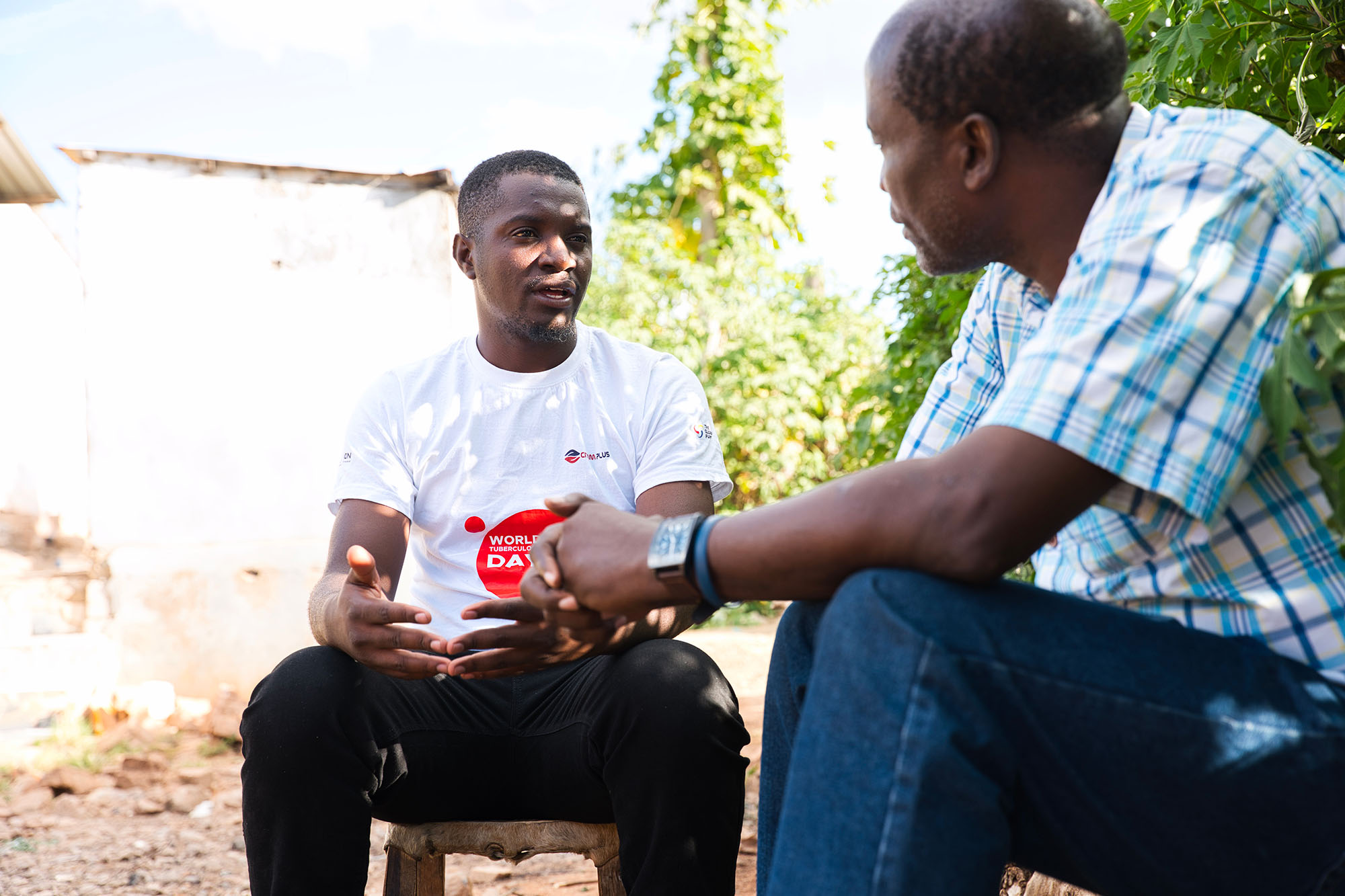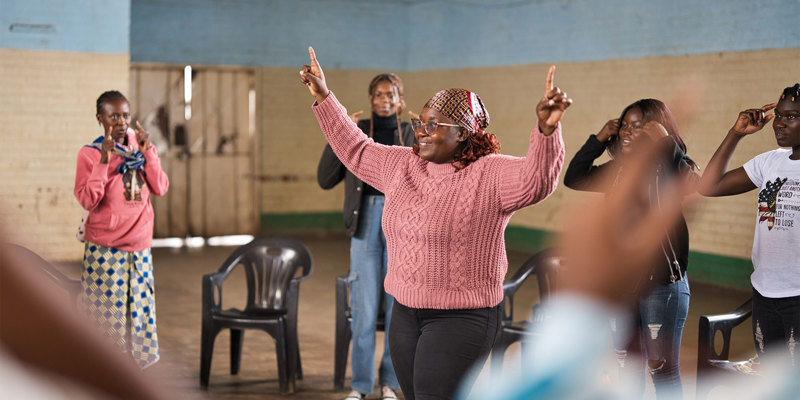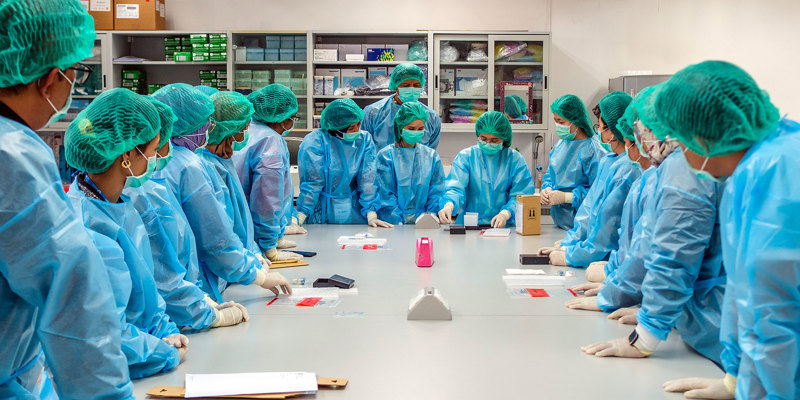

Community Health Workers Bridge the Gap
A conversation with community health worker Maxwell Mumba of Lusaka, Zambia
Community health workers play a central role in fighting HIV, tuberculosis (TB) and malaria. They are essential to build resilient health systems that can respond to new health threats and provide health care for all.
The Global Fund has invested more than US$1.5 billion in community health workers since 2020 and is investing US$900 million more over the next three years.
To mark World Health Worker’s Week, we are talking to community health workers about the challenges and impact of their vital work.
Why did you decide to become a community health worker?
In my work, I engage directly with people who are often marginalized and in need of support. Through my experience living with HIV, I have seen the challenges these individuals encounter firsthand.
The stigma surrounding HIV and AIDS can be incredibly isolating. By offering a listening ear, empathy and encouragement, I hope to create a safe space where individuals feel understood and supported.
I also connect people with essential services beyond HIV management. Whether it's facilitating access to primary health care, mental health services or social support programs, I strive to address people’s holistic needs – which is incredibly rewarding.
Can you explain the impact of your work on the community?
Community health workers bridge the gap between health care facilities and communities. They possess a deep understanding of local cultures, languages and customs, and often have intimate knowledge of the communities they serve.
This enables them to build trust, rapport and meaningful relationships with community members, advocate for their health needs, raise awareness about systemic issues and mobilize people to demand better access to health care services.
Community health workers empower people to take ownership of their health.
What are the biggest challenges you face?
I work at the Kamwala clinic in Lusaka, Zambia, in a remote and rural area. Inadequate infrastructure, such as transportation networks and communications systems, pose significant challenges to reaching HIV and TB clients.
There is also a lack of skilled peer educators and treatment supporters who work in these areas – recruiting and retaining new health workers is essential.
Cultural beliefs and practices regarding HIV and TB can also be a challenge. Tailoring health education programs to local customs and beliefs, while promoting accurate information about these diseases, can help foster community acceptance and engagement.
Poverty, unemployment and food insecurity exacerbate the impact of HIV and TB. Social support programs, economic empowerment initiatives and access to nutritious food can help address these issues.

Maxwell conducts regular home visits to counsel people and provide health services in and around Lusaka. He is pictured here with Alex Matakala, a beneficiary who lives in Kamwala South, Lusaka. Photo: The Global Fund/Jason Mulikita
Can you share a story or memory that reminds you of the impact community health workers have?
I had the privilege of counseling a young woman named Natasha when she discovered she was HIV-positive.
When Natasha came to the clinic, she was overwhelmed, frightened and uncertain about her future. I helped Natasha navigate her emotions, address her fears and understand that being HIV-positive doesn’t define her.
Natasha became determined that her diagnosis would not hinder her dreams. With support from her family and the clinic, Natasha completed her schooling and then decided to give back by volunteering at the same health facility where she received care and support.
As a treatment supporter, Natasha now offers guidance and encouragement to others who are newly diagnosed, walking alongside them on their journeys towards acceptance and empowerment.
She is particularly passionate about helping pregnant women who have recently discovered they are HIV-positive. Drawing from her own experiences, she offers a unique blend of empathy, understanding and hope to these women, reassuring them that they are not alone.
Natasha's story serves as a powerful reminder of the transformative impact that community health workers can have on individuals and communities. We can empower others to overcome challenges, embrace their truths and thrive in the face of adversity.
What support do you need to do your job well?
In order to succeed, health workers require continuous training, adequate provision of medical supplies – especially antiretroviral drugs, TB medications, testing kits and educational materials – and regular supervision from experienced health care professionals.
And dealing with HIV and TB can be emotionally challenging for clients and health care workers. Access to counseling and peer support groups can help us cope with the emotional toll of our work and prevent burnout.
Partners and advocates can support community health workers by providing regular, reliable funding for essential supplies, training, mentorship and engagement programs to foster trust and collaboration with the community.
I hope to see a future where access to quality health care is not determined by one's socioeconomic status, geographic location or health condition, and where community health workers are valued members of the health care team.
I hope to see healthier, more resilient communities where everyone can live a full and dignified life, regardless of their circumstances.







